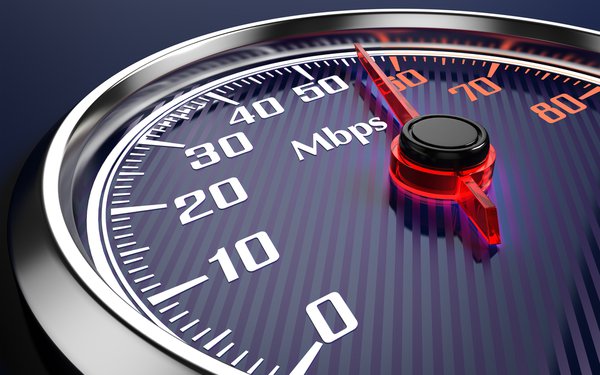
Broadband service at speeds of 25 Mbps download and 3 Mbps
upload -- the benchmark set six years ago by the Federal Communications Commission -- is probably too slow for many small businesses, according to a new government report.
“Millions of
small business owners continue to lack access to broadband that meets their needs,” the U.S. Government Accountability Office said in a report issued Thursday. “FCC’s minimum speed benchmark of 25/3 Mbps is likely not fast enough to meet the needs of many small
businesses, particularly with regard to upload speeds.”
The accountability office is recommending that the FCC should solicit comments and evaluate small businesses' broadband needs
regarding speed, and then draw on its findings when determining the definition of broadband.
advertisement
advertisement
For the report, the non-partisan accountability office relied on prior surveys by outside companies
and organizations, and conducted its own interviews with 12 small business owners.
One of the surveys, which was sponsored by Google, found that 8% of businesses with fewer than 250 employees
said “poor internet access” was “a barrier to improving digital engagement.”
Another study, sponsored by Amazon and the U.S. Chamber Technology Engagement Center, found
that 20% of rural small businesses don't use broadband. That report was based on a survey of 5,300 rural businesses with less than 500 employees.
Since 2015, numerous outside organizations,
advocacy groups and lawmakers have urged the agency to revise its benchmark upward.
The FCC relies on its definition of broadband when issuing an annual report on deployment; that report can
then influence how the FCC approaches decisions regarding broadband policy.
Acting FCC Chair Jessica Rosenworcel has argued in favor of defining broadband as speeds of at least 100 Mbps.
In March, Senators Michael Bennet (D-Colorado), Angus King, Jr. (I-Maine), Rob Portman (R-Ohio) and Joe Manchin III (D-West Virginia) urged Rosenworcel and other regulators to encourage deployment
at minimum speeds of 100 Mbps.
“The pandemic has reinforced the importance of high-speed broadband and underscored the cost of the persistent digital divide in our country,” Sens.
Michael Bennet (D-Colorado), Angus King, Jr. (I-Maine), Rob Portman (R-Ohio) and Joe Manchin III (D-West Virginia) wrote.
The trade group Incompas -- which counts online video providers like
Amazon, Google and Netflix among its members -- has argued for an even faster benchmark.
Last year, the organization urged the FCC to define define broadband as internet connections of 1
Gbps.
“Markets with gigabit connectivity not only have faster speeds, but also more affordable prices,” Incompas wrote in a filing with the FCC. “The U.S. should be adopting
benchmarks that reflect truly 'advanced' telecommunications capability, not settling for baseline speeds.”
Large internet service providers have generally asked the agency to retain the
current benchmark.